Lucy's Law: Delay bringing in puppy farms law in Wales criticised
- Published

The law was named after a dog rescued from a breeding farm in Wales
A law aimed at tackling so-called puppy farms in Wales is taking too long to be introduced, campaigners have said.
Lucy's Law, named after a Cavalier King Charles Spaniel that was rescued from a breeding farm in Wales, will come into action in England from April.
However, no date has yet been set to bring in the law in Wales.
The Welsh Government said banning third party sales - through pet shops and dealers - was unlikely to end puppy farming "overnight".
But Eileen Jones, founder and rescue co-ordinator at Friends of Animals Wales, said: "I don't think anybody has ever said Lucy's Law is the answer to all of it.
"It's the start of the end and it means the focus will be on people breeding puppies and we will be expecting members of the public to become an army of observers, of reporting incidents of puppies being held in unhealthy conditions.
"This has been going on for 20 years where people have been telling the Welsh Government there's a problem and its taken some high-level exposure to get some results."
Current Welsh Government regulations mean anyone who breeds three litters or more per year must be licensed by their local council.
In October, a BBC Wales investigation into "filthy" conditions at breeding sites licensed - and approved - by councils sparked a review of regulations by ministers.
But Ms Jones told BBC Radio Wales Breakfast: "We're still very frustrated because we don't seem to be getting any further. There's lots of wringing of hands but nothing is actually changing.
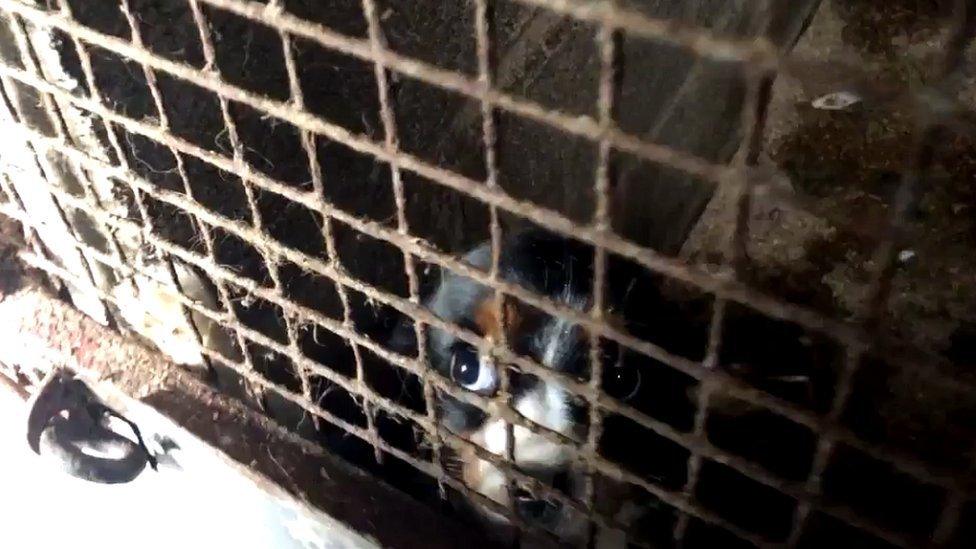
BBC Wales Investigates found dogs in poor conditions during undercover filming
"It's just not good enough because they could've enacted Lucy's Law quite quickly.
"England are bringing it in in April, and southern Ireland - which is an horrific hotspot for puppy farming - have actually announced that they are going to be bringing this in on 1 February with regulations very similar to Lucy's Law."
A Welsh Government spokesman said: "We need to gain a thorough understanding of the barriers to enforcement that exist within the existing legislation so we can tackle the problem effectively.
"The chief veterinary officer recently met representatives of local authorities to discuss this issue further and we are now considering our next steps."
- Published1 October 2019
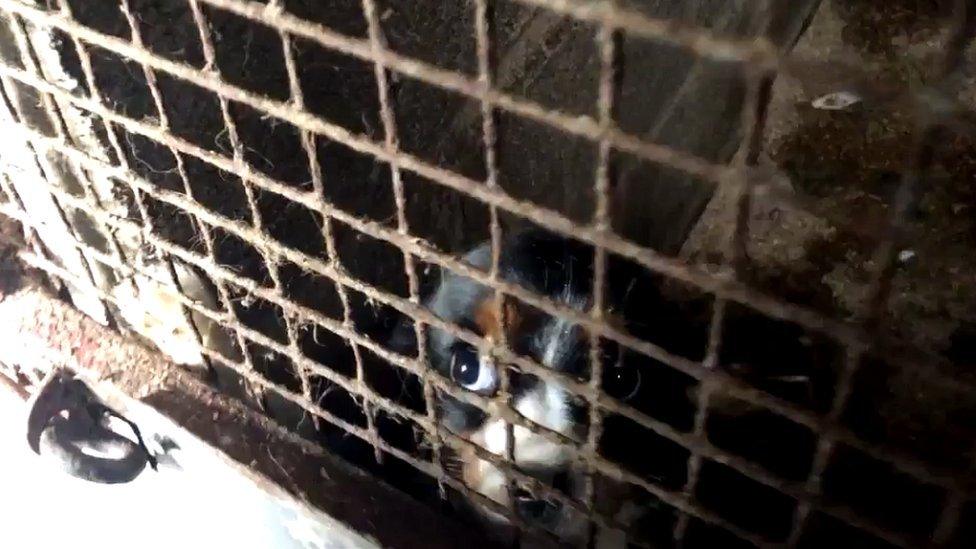
- Published30 September 2019
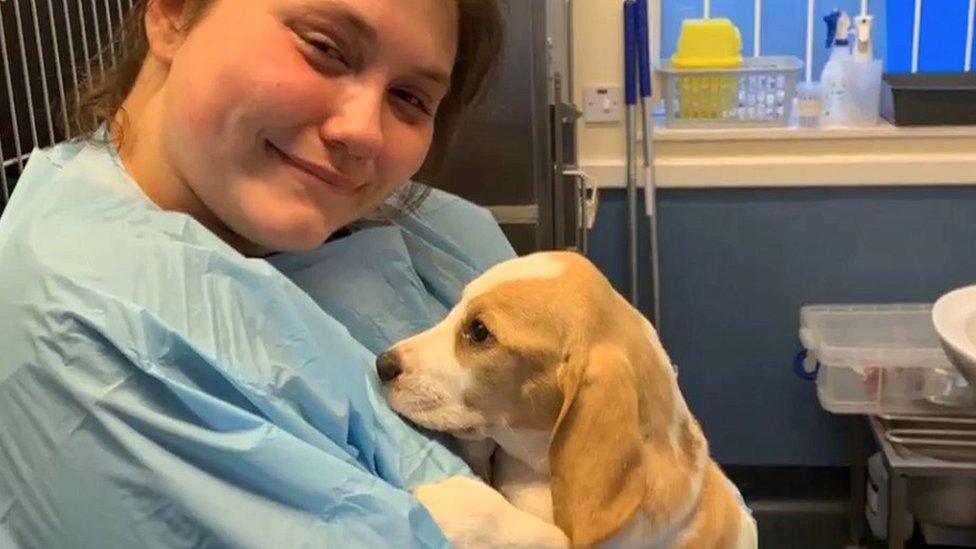
- Published1 August 2019
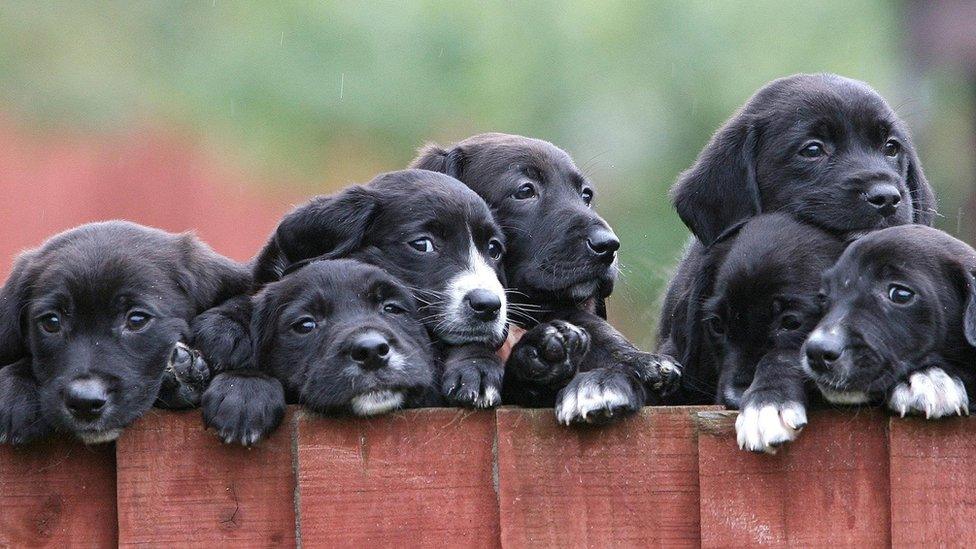
- Published8 November 2011
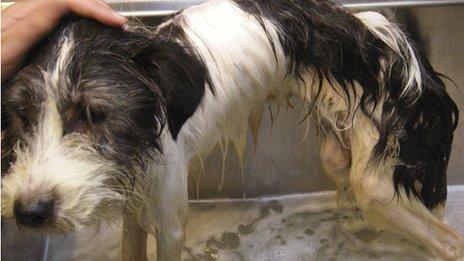
- Published2 September 2019
